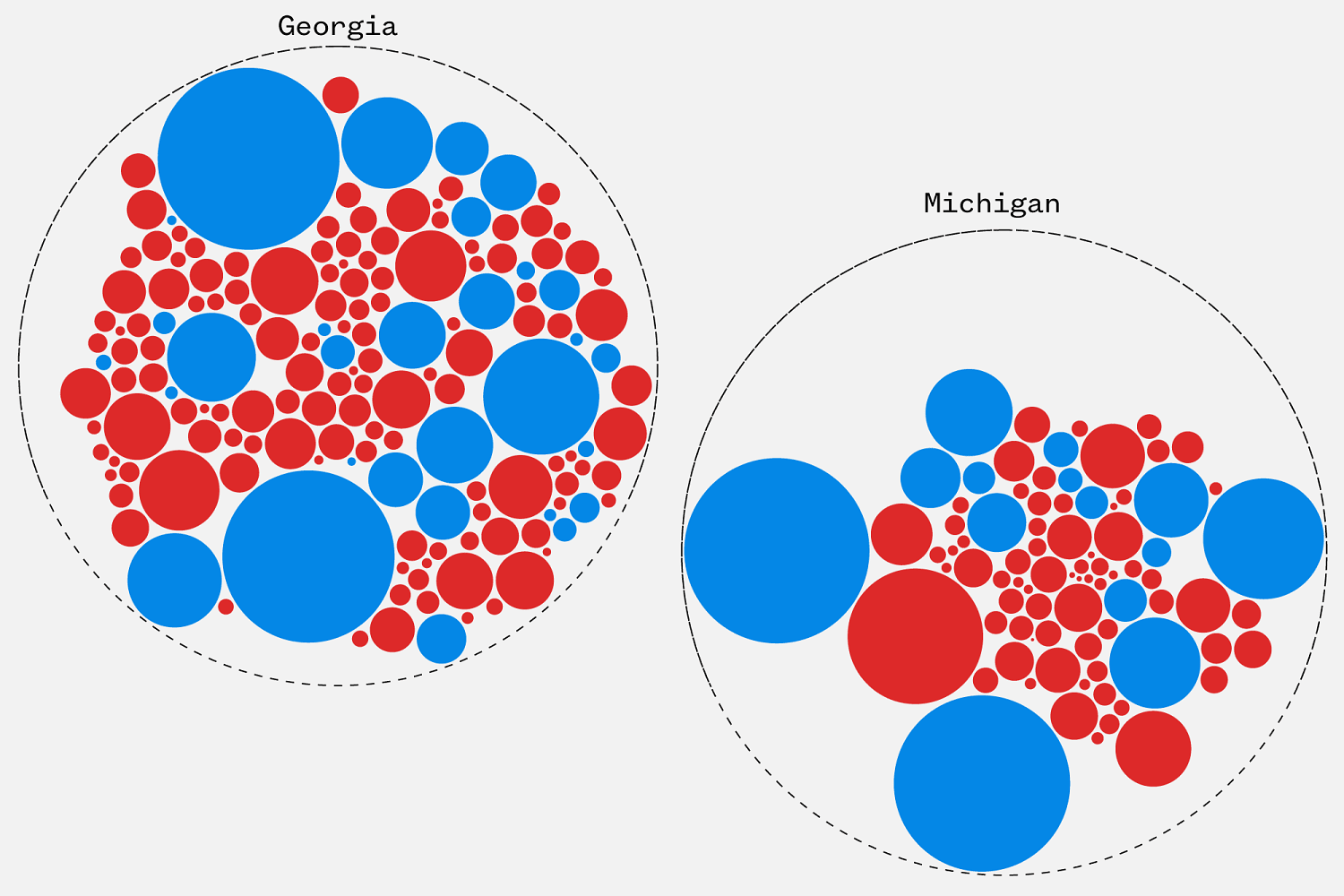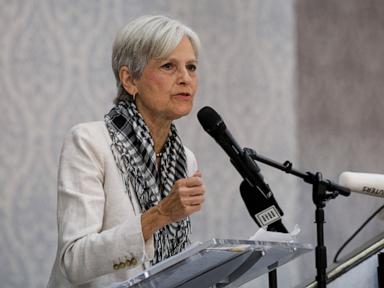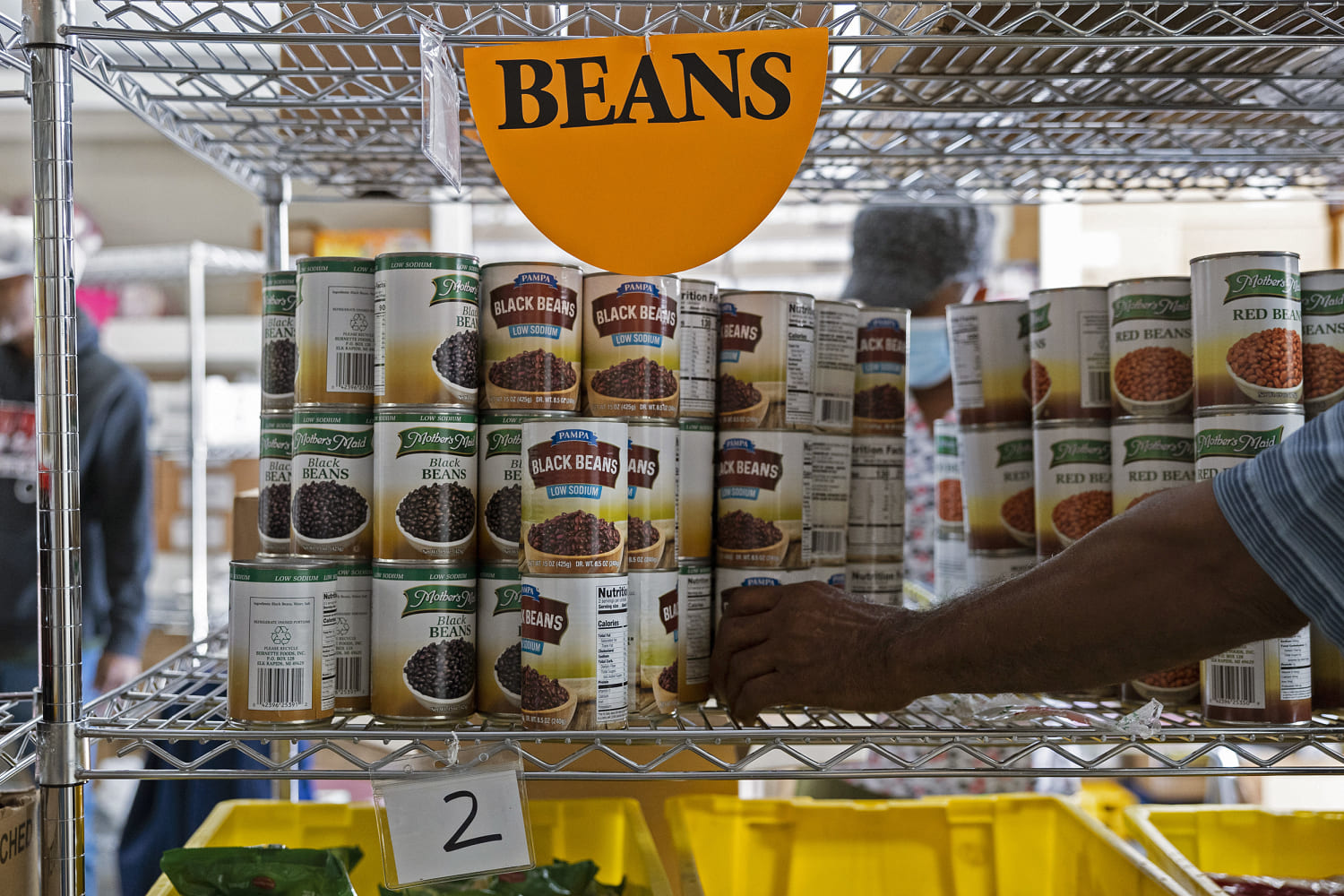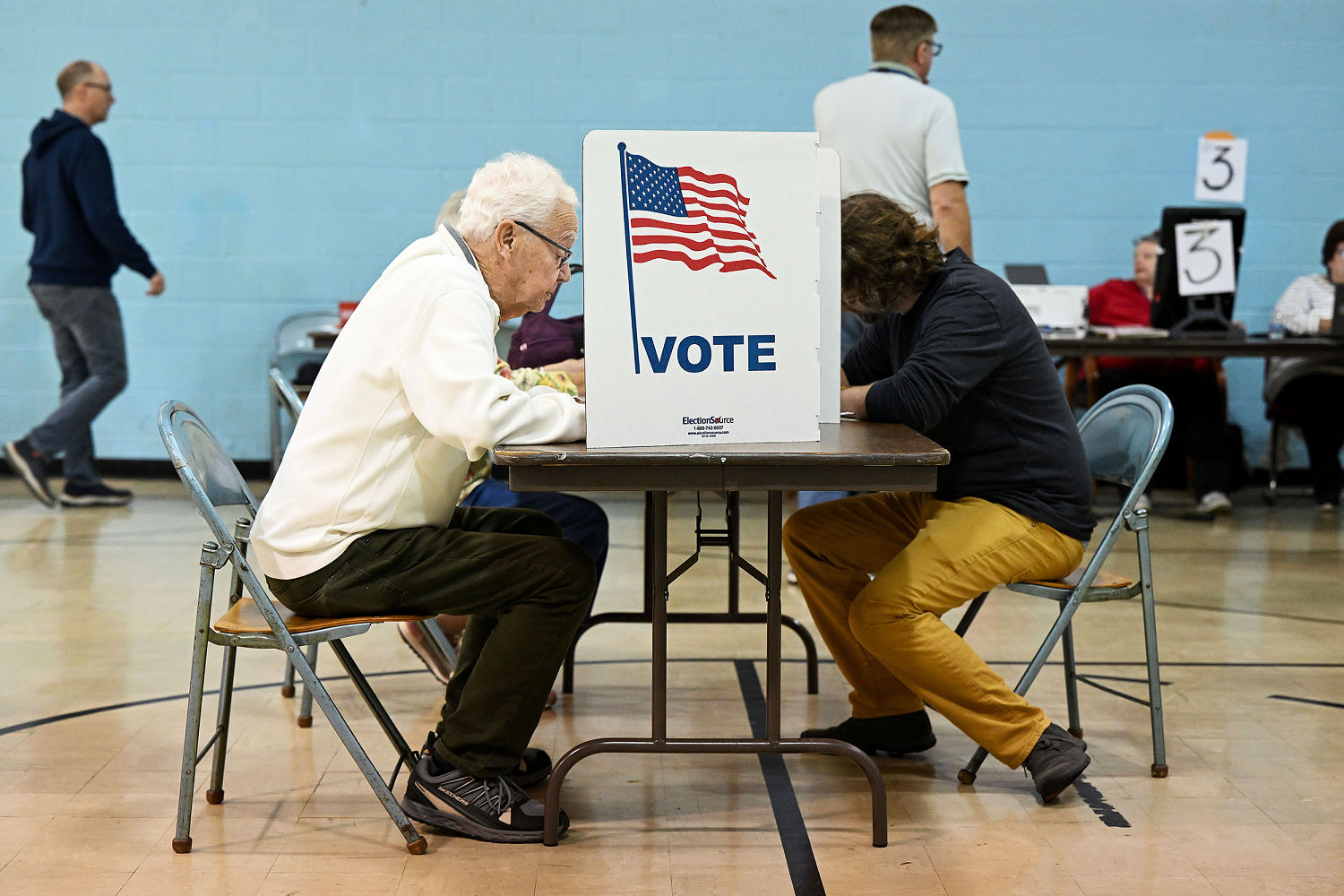Libertarian candidate emerges as wild card in key swing states

Libertarian nominee Chase Oliver’s presence on the ballot in key battlegrounds is sparking concern among some nervous observers that he could tilt the election should it end up being extremely close.
Oliver will be on the ballot next Tuesday in all seven swing states: Arizona, Georgia, Nevada, North Carolina, Michigan, Pennsylvania and Wisconsin, any number of which could hold the key to the White House as the battle between Vice President Harris and former President Trump comes down to the wire.
With Oliver’s closest rival Robert F. Kennedy Jr. out of the running, some see the anti-establishment votes that would have gone to the independent moving instead to the Libertarian — though it’s still unclear whether that would hurt Harris or Trump more.

“Libertarians and third-party candidates like Chase can change the outcome in elections that are razor-thin in swing states,” Lars Mapstead, a Libertarian candidate who ran against Oliver for the party’s presidential nomination this cycle, told The Hill this week.
At 39, Oliver has already made a political dent in one of the most closely watched swing states. The Atlanta native ran for Georgia’s 5th Congressional District in 2020 and two years later for the Senate, prompting a drawn-out race between Sen. Raphael Warnock (D-GA) and his Republican rival Herschel Walker.
His total vote count was high enough to make the two nominees go into a runoff election, a sign of his ability to influence results. Oliver won 2 percent of support in that race.
Grabbing even half of that in Georgia at the presidential level could help change the trajectory on Election Day. Polls show the state holding a 1.4 percentage point gap between Trump and Harris, with Trump at 48.8 percent compared to Harris’s 47.4 percent, according to the latest average of 56 polls by Decision Desk HQ/The Hill.
Oliver also could have an impact beyond Georgia. Running as a Libertarian — the most popular third-party offering in American politics — means he will be a candidate on all 50 ballots, including all the battlegrounds, where others have struggled.
Pennsylvania is the biggest get for both main parties, and there’s a precedent for Libertarians gaining ground there and other “blue wall” states. In 2016, for example, Libertarian nominee Gary Johnson won nearly 150,000 votes in the state; in Michigan, he earned more than 170,000. Both states had tiny final margins deciding the results.
Some Libertarians group Oliver in the same electoral bucket as Jill Stein, a physician and Green Party nominee who drew accusations of torpedoing Hillary Clinton’s candidacy against Trump in 2016. While those parties are ideological opposites, some believe they will both contribute to a Trump win, especially with Kennedy now off the ballot in most places where they’re competing.
“If many of the leftover RFK supporters vote for RFK anyway or Oliver or Stein, all good for Trump, as long as they don’t vote for Harris,” said one Libertarian politician who formerly ran for governor in a blue state.
“The GOP may be concerned because they want more votes and/or they want to squash third parties. But the Trump campaign should not be concerned,” the source said.
Oliver’s pitch has focused on freedom and an antiestablishment ethos. When President Biden struggled in the running against Trump, Oliver, who is an openly gay millennial, focused on being a generational change to the incumbent, while also taking digs at Trump’s legal plight.
“I’m under the age of 80, I speak in complete sentences, I’m not a convicted felon,” Oliver said before Biden elevated Harris as the Democratic nominee. “It’s a very low bar, but I’ve managed to clear that.”
He’s since messaged to distinguish himself from Harris, largely on economic issues, as the vice president herself is striving to make a kitchen table pitch in the final days of the race. Oliver has suggested completely getting rid of the Federal Reserve, which he believes would help reduce the bureaucracy in Washington and stabilize the country.
He also recently dipped into the rising costs of homeownership, a big focus for Democrats where voters have expressed frustration, making the case that the government is curbing buyers’ freedoms.
“You don’t really own your home, because you pay property taxes, and if you don’t pay those property taxes, the government can seize the home that you apparently own,” Oliver said during a debate hosted for third-party candidates this month.
Other topics where the Libertarian sees a less-is-more style being effective include health care and the environment, where he shares crossover interests with Kennedy. Some Democrats say they can envision an overlap among voters in swing areas where voters can’t easily get or afford necessities and see the government as an added hindrance.
That message may resonate somewhere like Wisconsin, a competitive toss-up where Trump leads by less than half a percentage point over Harris in the latest aggregate. The Badger State, which has a large population of white working-class voters, will have Kennedy and Oliver on the ballot, as well as Stein and progressive scholar Cornel West.
“Wisconsin voters might be persuaded to vote for the Libertarian pro-environment pro-healthy food platform,” said Hassan Martini, a Democratic strategist and executive director of No Dem Left Behind.
Democrats have been more closely targeting Oliver as part of the bigger group of non-Harris candidates whose corner of votes they fear will help Trump. A coalition of progressive groups on Tuesday put out a new seven-figure campaign ad spanning all the battlegrounds targeting what it calls “third-party curious voters” and working-class people.
Besides economic differences, Oliver’s other biggest distinction from Harris and Trump — his opposition to Israel’s role in the war in Gaza — could further tee him up to have influence in states with substantial Arab American and Muslim populations, like Michigan.
Trump has struck anti-war notes during his closing pitch to voters, noting that during his administration, the United States was not engaged in any foreign wars. Oliver, too, sees a dovish approach as central to winning voters who have grown tired of the country’s long-standing engagement in international conflicts.
Mapstead, who ran against Oliver, said “interventionism” is one of the areas where “the Libertarian Party is moving the Overton window.”
-

Harris, Trump tied in key swing state: Poll
Politics - The Hill - October 30 -

Rain forecasted in key swing states on Election Day
Politics - The Hill - November 4 -

Tracking the remaining votes in key swing states
Politics - NBC News - November 6 -

How third-party candidates could make a difference in swing states
Politics - The Hill - October 22 -

Third-party candidates could be swing-state spoilers despite strong Democrat efforts
Top stories - ABC News - November 1 -

Harris and Trump tour key swing states as end of campaign draws close
World - The Guardian - November 2 -

Harris, Trump deadlocked in seven key swing states: Polling
Politics - The Hill - October 24 -

In key swing states, the lines at food banks are growing longer
Politics - NBC News - October 26 -

How each of the 7 key swing states would handle a 2024 recount
Top stories - NBC News - October 31
More from The Hill
-

Tom Homan says Trump admin will 'absolutely' use gifted Texas land for deportation program
Politics - The Hill - 4 hours ago -

Poll finds most Dems want Harris for next presidential nominee
Politics - The Hill - 4 hours ago -

GOP Rep. Van Orden says he would vote to release Gaetz report
Politics - The Hill - 5 hours ago -

GOP Sen. Markwayne Mullin: Letting Oklahoma public school educators teach the Bible is a 'slippery slope'
Politics - The Hill - 5 hours ago -

19 Senators back limiting offensive weapons to Israel in key vote
Politics - The Hill - 5 hours ago